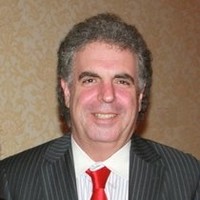A former Sarasota insurance agent and financial advisor has been sentenced to 15 years in prison for what prosecutors said was a scheme to defraud elderly residents out of $6 million.
Phillip Roy Wasserman, 67, was convicted of fraud charges in May 2023 and pleaded guilty to tax evasion in October. He and co-conspirator Kenneth M. Rossman, a Bradenon accountant and insurance agent who pleaded guilty in 2021, had convinced investors to put their money into Wasserman’s novel life insurance venture, known as FastLife, the U.S. Attorney’s Office for the Middle District of Florida said in a statement issued Friday.
The FastLife product was described on Wasserman’s Linkedin page as a “crazy fast” way for people to purchase life insurance from “highly rated insurance companies.” Investors in the startup were guaranteed an annual return of 10% to 12%.

But the program was a scam and worked something like a Ponzi scheme, with funds from newer investors used to pay earlier ones, prosecutors said.
“With false promises of riches and security, Mr. Wasserman exploited the most vulnerable in our society. Investment schemes that target the elderly are especially heinous and will not be tolerated by the justice system,” said Brian Payne, special agent in charge with the IRS-Criminal Investigation section.
Evidence showed that when he learned of the investigation, Wasserman created a second set of books and fabricated a compensation agreement in an effort to convince investigators that he had not made improper personal use of victim-investors’ funds. He also urged one witness to lie to investigators, attempted to dissuade several victims from cooperating with law enforcement, and requested that one victim make a baseless complaint against an investigator, the U.S. Attorney’s office said.
In an interview with Insurance Journal in May, Wasserman said he did not use the money for personal gain and he offered an accounting report that he said confirms that.
But prosecutors said that evidence at trial showed that Wasserman had never engaged the accounting firm to perform an audit and had never received any final work product from the firm.
Wasserman, in fact, spent much of investors’ money on an upscale home, a beach house on Casey Key, hockey season tickets, concerts, vehicles, jet skis, jewelry, gambling, retail shopping, home improvements, and personal insurance, the federal authorities noted.
Besides prison time, Wasserman must also forfeit property and assets to cover $6.3 million in restitution.
Topics Agencies
Was this article valuable?
Here are more articles you may enjoy.



 How One Fla. Insurance Agent Allegedly Used Another’s License to Swipe Commissions
How One Fla. Insurance Agent Allegedly Used Another’s License to Swipe Commissions  Q4 Global Commercial Insurance Rates Drop 4%, in 6th Quarterly Decline: Marsh
Q4 Global Commercial Insurance Rates Drop 4%, in 6th Quarterly Decline: Marsh  Florida’s Commercial Clearinghouse Bill Stirring Up Concerns for Brokers, Regulators
Florida’s Commercial Clearinghouse Bill Stirring Up Concerns for Brokers, Regulators  Trump’s Repeal of Climate Rule Opens a ‘New Front’ for Litigation
Trump’s Repeal of Climate Rule Opens a ‘New Front’ for Litigation 

